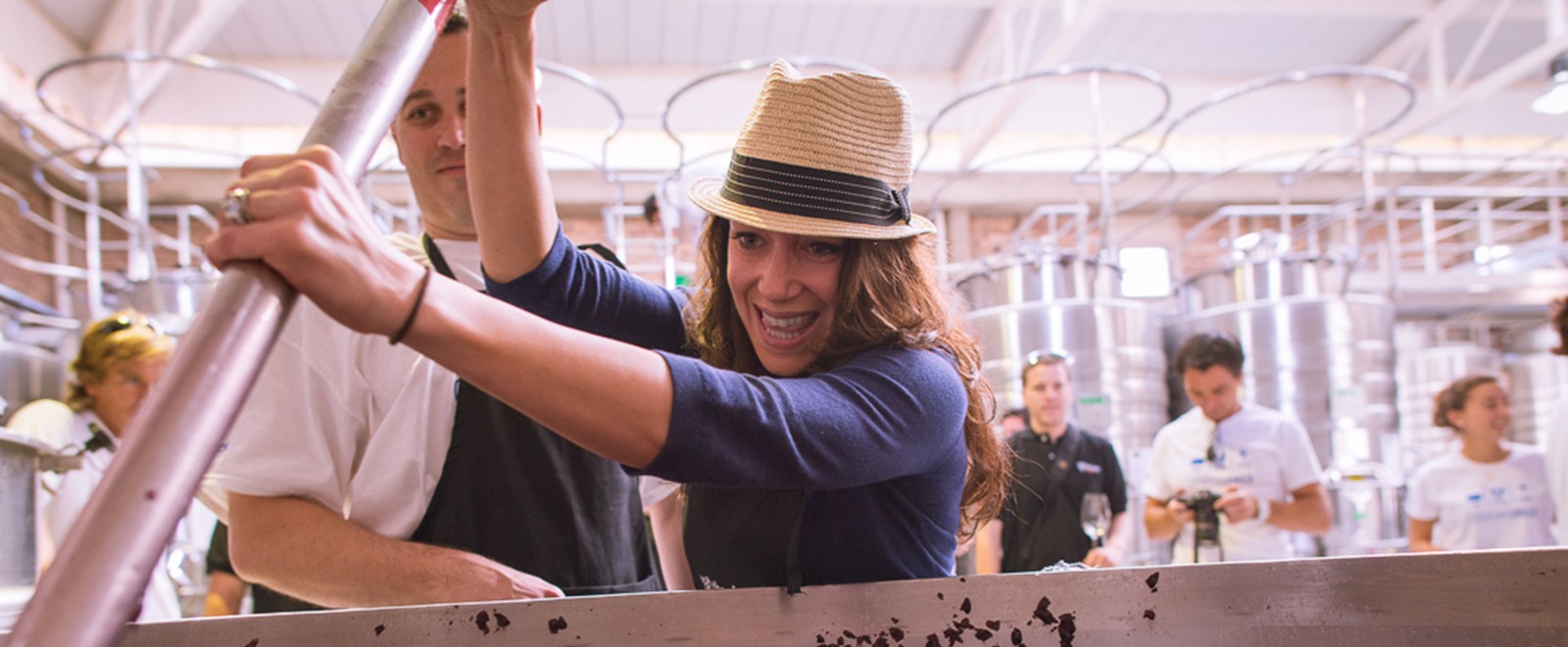Mendoza, Argentina
By Kate Tedesco
NEWSWEEK's
Kate Tedesco has been covering Latin America on various fronts for more
than a decade. She spent a chunk of a recent trip to Argentina
exploring the dynamic wine scene, and its corresponding culinary and
design boom, in the city of Mendoza, which is fast developing an
international reputation as the “New Napa.â€
Mendoza is nestled in the shadow of Acongagua, South America’s tallest peak, and
has some of the highest vineyards in the world, so in addition to
tasting world-class wine visitors can also take in some stunning
scenery. The desert-like climate and rocky soil don’t necessarily make
for easy agriculture, but area vineyards are irrigated by a
pre-colonial canal system that channels melting snow from the
surrounding Andes, and the challenging growing conditions contribute to
the depth and complexity of the region’s wines. Malbec, Argentina’s
signature red grape, thrives under Mendoza’s nearly-constant and
highly-concentrated sunshine, but there are also a number of excellent
local Cabernets and Merlots, and some younger vineyards are beginning
to diversify into edgier varietals like Shiraz and Bornada.
Taste: Start with a swing by the Vines of Mendoza, South America’s first regional tasting room (www.vinesofmendoza.com).
Its cozy courtyard garden serves as a gathering spot for enthusiasts of
all stripes, and the knowledgeable staff guide visitors through flights
of boutique local labels, many of which are not available abroad (and
all of which can be purchased and shipped back home at minimal cost
through their Acequia Wine Club).
The Vines also serves as a
comprehensive concierge, and will help tailor itineraries and tours—an
important service, since many wineries are located off the beaten path,
about an hour’s drive outside the city, and require reservations in
advance. O Fournier (www.ofournier.com)
is a bit of a trek, but worth it for the winery’s sleek, almost
space-age design, offset by a sweeping snow-capped backdrop. The
post-modern theme continues inside as automatic sliding doors
dramatically beckon visitors to enter the cavernous, steel-beamed wine
cellar, which also doubles as a contemporary art gallery. A tasting at La Azul (www.bodegalaazul.com)
is by no means grand, but at this informal boutique winery—which
handpicks just a fraction of each year’s harvest to produce extremely
small quantities of extremely fine wine—straight-from-the-barrel never
tasted so good. Achaval-Ferrer (www.achaval-ferrer.com)
is a newer winery, passionately helmed by a former national business
executive and Stanford MBA, who has in just a decade already unveiled
two of the world’s highest rated Malbecs. And for a truly authentic
tasting experience, go straight to the suburban home of Carmelo Patti
(0261-498-1379). A modern Mendoza legend, for more than three decades
Patti has been producing top-quality Cabernet and Espumante (sparkling
wine) with antiquated equipment, directly from his family’s garage.
Eating: Many wineries offer formal four-course lunch pairings in rather spectacular settings, like the sun-soaked dining room at Bodega Septima (www.bodegaseptima.com), or the lush garden café at Ruca Malen (www.bodegarucamalen.com). Almacen del Sur (www.almacendelsur.com)
does not make wine, but this renowned lunch spot on a family farm also
functions as an artisanal delicatessen, and produces instead its own
line of gourmet spreads, chutneys and jams.
Dinner in Mendoza
often doesn’t get underway until after 10:00 pm, so if your stomach has
not adjusted to local time, stop by the outdoor cafe next to the retail
chain Winery (www.winery.com.ar)
for an early evening snack of tapas with a glass of espumante. But when
the dinner hour arrives, don’t be afraid to stray from steak and try
some other dishes made with locally-raised meat, especially traditional
specialties like Chivito (young goat). At Azafrán (www.bve.com.ar),
diners can visit the restaurant’s on-site wine cellar to select their
own bottles to pair with some of the city’s most creative contemporary
cuisine, like a succulent pork tenderloin glazed with pomegranate
sauce. La Sal (www.lasalrestaurante.com)
offers a more intimate, artsy setting, with a seasonal menu and live
music. But if you insist on beef and nothing but, locals swear by Don Mario (www.donmario.com.ar) as having the best cut in town, and the menu more than trumps the restaurant’s modest décor.
Stroll:
The center of Mendoza is easily navigable on foot, and the best time to
be seen in its parks and plazas is right before sunset, when the city
begins to come alive after a long afternoon siesta. The Plaza Espana is especially beautiful for its intricate tile work, and the public gardens in the Parque San Martin are impressively lush considering the city’s dry air. A walk down Avenida Sarmiento presents a number of shopping distractions. Sol & Vino
(Sarmiento 664) carries a fine assortment of quality leather products,
gaucho-inspired gear and Asado carving knives: but if you buy one, just
make sure not to store it in your carry-on. And if you eventually tire
of wine, peruse the bars along Calle Aristides Villanueva for viable beverage alternatives. Antares (www.cervezaantares.com)
specializes in microbrews and—despite the long-standing national
rivalry with neighboring Chile—any bartender worth his salt working
along the block can still whip up a fine Pisco Sour.
